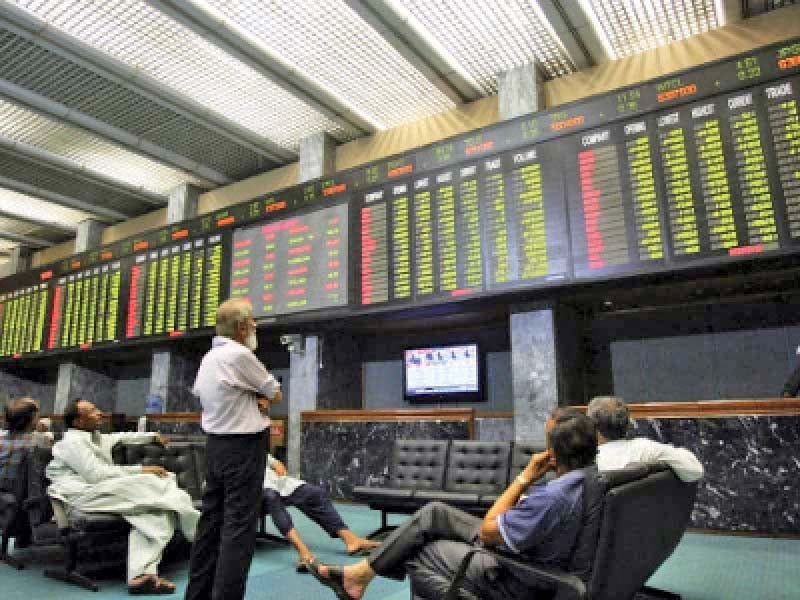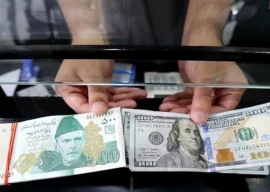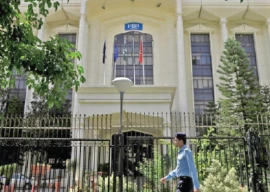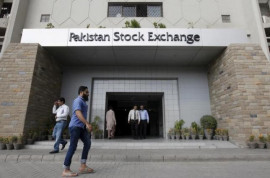
There have been silver linings in Pakistan’s economic outlook since the start of the fiscal year. The much-needed impetus started with finally sealing a Standby Agreement with the International Monetary Fund (IMF), followed by a caretaker setup. Additionally, sharp improvements in PKR and fixed-income bond yields have depicted signs of optimism. But one much-touted indicator of stock market performance has been the real talk of the town. The KSE-100 conveniently surpassed its all-time peak of ~52,000. But does that mean the boat has already sailed?
Let’s understand. The KSE-100 Index level is a total return index. Therefore, any increase in the value is a function of an increase in share price and dividends announced. While dividends are immediately deducted from the share price, the index value remains elevated. Also, since the peak in 2017, many companies and industries have demonstrated much higher profitability in rupee terms, thus the current values still reflect undervalued assets.
Assuming that all the KSE-100 companies earned $1 only, that asset was trading at $12 in 2017, thereby having a Price to Earning (P/E) ratio of 12x. That was a sign of peak optimism and euphoria right after Pakistan joined the jinxed MSCI Emerging Market status. Beware yourself of such peak optimism. In contrast, as per various estimates, the current P/E valuation metric of the same KSE-100 is 3.7-8x, thereby implying significant catch-up returns. Pakistan only needs to catch up to the old Pakistan to deliver abnormal returns.
The recent market uptrend is a function of clarity that Pakistan isn’t defaulting, is in an IMF programme, has no choice but to take structural reforms, moderate oil prices, gradual resumption of imports and dividend repayments, strict fiscal prudence, tight monetary policy, falling fixed-income yields, and clarity over election dates. Smart money is accumulating shares trading at a fraction of the replacement and asset values, with several top companies buying back their own shares using corporate treasury. Blood was already on the streets, but someone took the bet.
Read PSX touches new heights as rupee continues downward trend
Nevertheless, at a 21% interest rate, many conservative and risk-averse investors would shy away from equity markets that need to offer more than the risk-free 21-22% rate to compensate for higher volatility in returns. Investors who have already lost their shirts in the stock market would pray to break even or not venture until their views are substantially altered. Empirically, it takes a decade to erase the memories of such sharp 40-50% declines in equity markets from people’s investment avenues.
Critical before venturing into the equity markets today is to know your own self. Whether I can endure such downside to my wealth and what time horizon can I invest for are two critical parameters. Tenets of diversification, quality companies, and avoiding unnecessary trading remain central to strong equity market returns. In the near future, interest rate cuts, a successful IMF review, acceptable elections to be followed by a medium-term IMF programme are likely re-rating events that can take the KSE-100 Index to Pakistan’s long-term P/E of 5-6x, still offering a staggering upside from current levels.
It will be difficult to convince investors to enter the market today until they see people around them making money from the stock market, their bank deposits offering inflationary 14-16%, PKR remaining stable against the USD, and property market performance being much lesser than PSX broader returns. Markets are forward-looking and move on sentiments. If Pakistan continues on the path of enhancing energy security, enhancing tax revenues, privatising loss-making SOEs, and remains steadfast in reducing debt, foreigners will eventually lead Pakistan’s re-rating story provided the geopolitical environment remains conducive.
The next government needs to incentivise companies listed on PSX by offering lower tax rates and rewarding investments in documented wealth-generating sectors instead of providing cherries to people investing in real estate plots as a means to park their black money. Already, global giants such as Shell are bidding farewell to Pakistan’s operations, and many are delisting – Pak Suzuki – in the absence of tangible benefits of being on PSX. While the regulator has done a commendable job to increase the level playing field for brokers, making it easy to onboard investors digitally and protect their assets, the onus, once again, is on macroeconomic managers.
In developed economies, fixed income and real estate returns are hardly nominal enough to cover long-term inflationary trends. Thus, their pension pots are invested in equity markets hiring specialised asset managers or specialised exposure through Exchange Traded Funds (ETF). A lot of rebuilding and work is needed in Pakistan to regain trust. We broke that trust with a market crash in 2008, 2018-9, and 2022-3; let’s not hurt investor sentiments again – they are counting on policymakers again. The investor is duty-bound to know the company they invest in and avoid “tips” and “satta” stocks promulgated by speculators. Respect Mr Market, and he will pay you back.
THE WRITER IS AN INDEPENDENT ECONOMIC ANALYST
Published in The Express Tribune, November 13th, 2023.
Like Business on Facebook, follow @TribuneBiz on Twitter to stay informed and join in the conversation.


















COMMENTS
Comments are moderated and generally will be posted if they are on-topic and not abusive.
For more information, please see our Comments FAQ